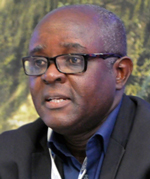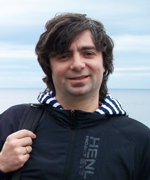 Professor Robert Marsh
Professor Robert Marsh
Professor Marsh is a Physical Oceanographer, with a background in climate science. He uses a combination of computer models and observations to study the oceans and climate, from Equator to poles. In recent years, he has led research on the extent to which changing ocean salinity patterns are revealing an intensification of the global water cycle, whereby wet places and seasons are getting wetter, while dry places and seasons get drier. He has also led research on the drift and melting of icebergs at high latitudes, as ice sheets disintegrate. Of particular relevance to SARTRAC, he uses “particle tracking” to explore how a wide range of objects and material drift through our oceans, including organisms, plastics and pumice. This methodology is now being applied to Sargassumdrift in the tropical Atlantic. Bob is currently finishing an undergraduate text book, “Ocean Currents of the World”, with a strong emphasis on these applied contexts.
 Professor Kwasi Appeaning Addo
Professor Kwasi Appeaning Addo
Professor Kwasi Appeaning Addo is the Director for the Institute for Environment and Sanitation Studies in the University of Ghana; Co-Pi for the deltas, vulnerability and climate change; migration and adaptation (DECCMA project (2014 – 2018); Co-Pi for the integrated and sustainable port development in Ghana within an African context project (2016 – 2020); Co-Pi for the beach dynamics through video monitoring to improve coastal management strategies in West Africa (BEACHMON) project (2017 – 2020); Co-Pi for the empowering women and transforming gender relations in the Volta delta, Ghana project (2019 – 2020), PI for the urbanizing deltas for the world: design for inclusive and adaptive delta management (DIADeM) project (2019 – 2020), WP lead for the coastal community resilience to climate and diarrhea (C2R-CD) project (2020 -2025).
 Dr Nikolaos Skliris
Dr Nikolaos Skliris
Dr Nikolaos Skliris is a Senior Research Fellow in physical oceanography within Ocean and Earth Science, National Oceanography Centre Southampton at the University of Southampton. Hehas been involved in oceanography and climate research for 20 years. He hasextensive experience in ocean modelling and in the design and application of diverse operational ocean forecast systems at regional/coastal scales (ocean circulation, oil-spills, marine ecosystems) through his participation in various EU funded projects concerning operational oceanography of the European Shelf Seas. Through two recent NERC projects, Nikolaos used global ocean observational datasets and coupled climate model outputs to constrain and investigate changes in the global hydrological cycle. Hiscurrent research focuses on the impact of global warming and hydrological cycle change on ocean climate at regional scales with various implications, from changes in the large-scale ocean circulation and regional freshwater budgets to changes in marine ecosystems and coastal flooding events.

